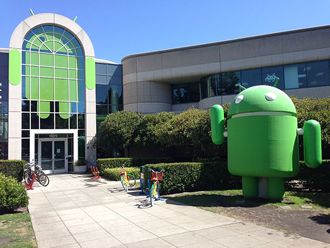 The search engine also known as Google is restructuring its European businesses to cope with the fact that the EU might want it to be a little more reasonable on privacy and anti-trust issues.
The search engine also known as Google is restructuring its European businesses to cope with the fact that the EU might want it to be a little more reasonable on privacy and anti-trust issues.
Google merged its two European regional divisions claiming it needed to “meet the challenges of tougher regulation across the continent”,
The internet giant is merging its northern and western European division with the unit covering southern and eastern Europe, Middle East and Africa.
The move will simplify the organisation, both for commercial reasons as well as to work more effectively with business partners and policy makers.
The tax-friendly Dublin will still remain as Google’s Euro-base, and the reorganisation will not result in job losses, the source said.
Google has been given a good kicking by European Commisioners for its tax avoidance antics and tendency towards what the EU considers playing fast and loose on privacy matters.
In response, Google has argued that for Europe to remain competitive in global markets, it needs to form a single digital market instead of relying on national regulations in its 28-member states that often act to protect local industries.
It appears that Google is pinning its hopes on former British Olympic rower Matt Brittin to sort out the mess. Brittin led Google’s northern and western European division and will head up the combined Europe, Middle East and Africa operation while Carlo d’Asaro Biondo, formerly head of the other regional unit, will take on a strategy role.
D’Asaro Biondo is a former media suit who worked for Lagardère, AOL Europe and computer services company Unisys, will continue to work from Paris.
He will manage Google’s strategic partnerships in the region, which include working to deepen ties with newspaper publishers, telecom operators and carmakers.
Brittin has packed his executive bag and headed to Brussels to argue the company’s case that it serves as a growth engine for European business, especially for small and medium-sized enterprises, because the Internet helps create a level playing field. But then again so do monopolies only the bloke owning the level playing field makes a fortune renting it out for others to play on.
 In 2014 Android was dominant as the operating system for smart devices – including smartphones and tablets.
In 2014 Android was dominant as the operating system for smart devices – including smartphones and tablets.














